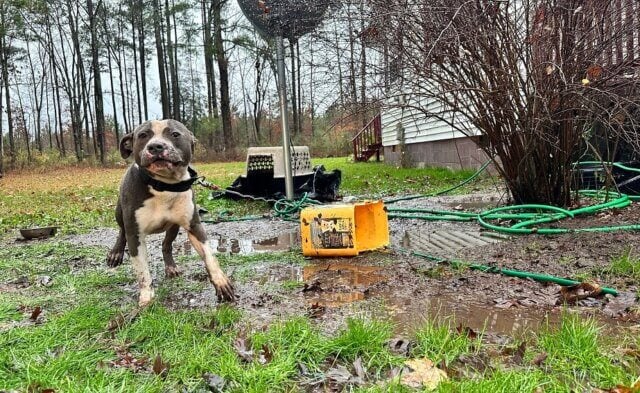A cat frantically shakes her feet, trying to free herself from sticky tape while the person filming her giggles with glee.
A dog sandwiched between foam “hot-dog buns” struggles to walk, amid peals of laughter.
You’ve probably come across videos or photos like these online. Maybe at first glance they seemed funny or cute. Perhaps you even “liked” or shared them. But if you stopped to think about them from the animals’ perspective, you might realize that there’s nothing funny about them at all.
Desperate for “likes” and “shares,” some people force their trusting animal companions into demeaning, distressing and downright cruel situations. Cruelty isn’t always obvious. Dressing dogs or cats up like hot dogs or pirates may seem cute, but the animals don’t understand what’s going on and probably find the costumes uncomfortable, cumbersome or even frightening.
Costumes can also be dangerous. They can pose a choking or strangulation hazard, cause animals to overheat, or impair their ability to see, move or breathe. Since many people have a hard time reading animal body language, they may not even notice when the animals are in distress.
Forcing animals to wear costumes or putting them in other situations just to make people laugh at them sends the harmful message that animals are here to amuse us. It encourages people to view them as playthings—not living, feeling beings with needs and desires of their own.
“Pet shaming” is another form of “entertainment” undertaken at animals’ expense. But often, it’s the animals’ human guardians who deserve to be shamed. Cats rightfully refuse to step into litter boxes that haven’t been cleaned. Dogs chew on objects when they’re teething or left at home for long, lonely hours with nothing to do day after day. And of course animals will scarf up food carelessly left within reach.
Another awful trend is so-called “pet fail” videos, which feature scenarios like cats falling into bathtubs or off tables and dogs getting their heads stuck inside bags of food. Some of these videos even show animals smashing into glass doors. In one, a dog crashes through a glass table, shattering it.
Besides physical injury, these situations can result in animals’ long-term psychological trauma. When people deliberately orchestrate stunts that frighten or injure their animal companions, it breaks the bond of trust between them. It can leave animals feeling fearful and anxious in their own homes—causing them to hide, be on constant alert and startle easily. If an animal’s anxiety is severe enough, it can even produce physical ailments. No one should be subjected to danger or distress for a cheap laugh.
There are countless examples of these misguided videos, but here’s just one more: Believe it or not, some people actually pretend to die in front of their dogs, who howl in distress and nudge and lick their unresponsive humans, frantically trying to revive them. Dogs form deep bonds with us, consider us to be members of their family and, yes, grieve when a loved one dies. Imagine how you would feel if someone you love collapsed in front of you and couldn’t be revived. That’s how these dogs feel.
We can learn so much from animals—unconditional love, loyalty, friendship and how to have fun and joy at no one’s expense, to name just a few. Instead of mocking animals and making them the butt of cruel jokes, we should lavish them with the kindness, respect and love they deserve.
Ashley Frohnert is PETA’s Director of Social Media.





